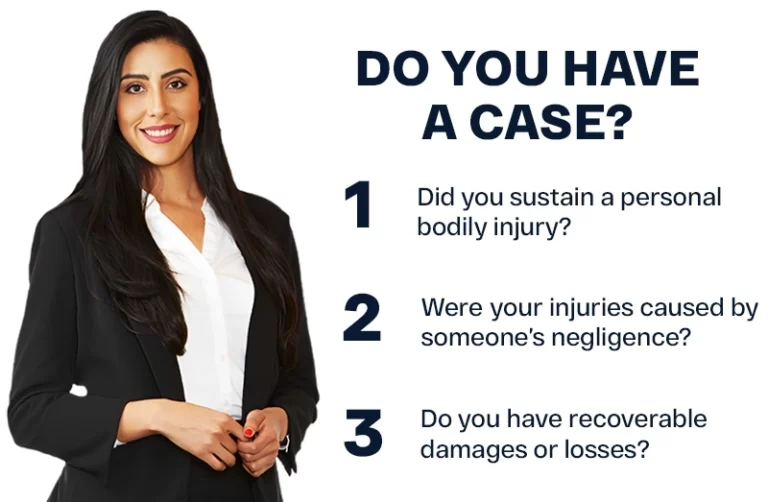Table of Contents
The term “damages” is a legal remedy based upon the principle that a person injured through a breach of contract, by a wrongful or negligent act, or by an omission of another party should be fairly compensated to a degree equivalent to the sustained injury or loss.
It refers to the sum of money that the court awards or imposes as pecuniary compensation, recompense, or satisfaction for loss or injuries suffered as a consequence of either a breach of a contractual obligation or a tortious act. They are the amount that the losing side of a lawsuit must pay to the winning side to compensate for losses or injuries caused by the party at fault.
Were you injured by a negligent party and need to speak with a personal injury lawyer? Our attorneys at Arash Law, led by Arash Khorsandi, Esq., can walk you through the damages you can pursue. Contact our law firm at (888) 488-1391 for a free case review.
Compensatory Damages Vs. Punitive Damages
Compensatory damages are monetary awards to make up for the losses you experienced because of an injury. They may cover financial costs like medical bills and lost income, as well as non-economic harm such as pain, emotional distress, or reduced quality of life.
Punitive damages or exemplary damages refer to the amount of money that is more than the actual damages. It serves as a punishment for willful or malicious acts and deters others from behaving in the same manner.
It is imposed by way of example or correction only in addition to compensatory damages, but they cannot be recovered as a matter of right. Their determination depends upon the discretion of the court. These types of damages are typically only awarded in cases where the behavior of the defendants was extremely careless or malicious.
Although rare, a judge may award punitive damages during a personal injury suit in California if they find evidence of the defendant’s gross negligence, malice, fraud, or intent to harm. Personal injury lawyers at Arash Law can give you an estimate of your claim’s potential value.
The Two Types Of Compensatory Damages
The California Courts identified two types of compensatory damages, which are either special or general.
Special damages refer to the expenses incurred because of the accident and injury. They are the out-of-pocket costs spent on your recovery, repairs, and medical treatments. Special damages are referred to as economic, tangible, and actual damages.
These are awards that are tangible and easy to calculate because they are based on the actual expenses of the victims. In addition to medical expenses, victims can claim compensation for lost wages, damage to property, and court and litigation expenses related to the negligence.
Examples of special damages:
- Past and future medical expenses
- Disability accommodations
- Live-in care or nursing home care
- Domestic services
- Medical equipment
- Prescriptions
- Rehabilitation and therapies
- Lost earnings
- Damaged or destroyed property
- Transportation and travel costs
General damages are the losses any reasonable plaintiff would have suffered in the same accident. They are awards that are difficult to quantify, as they cover non-economic, intangible, and subjective losses such as emotional distress, pain and suffering, post-traumatic stress disorder (PTSD), deformity, shortened life expectancy, and long-term medical treatment. Another example that would qualify for general damages is when someone has trouble forming relationships after their injury. This is known as “loss of consortium.”
The amount awarded in general damages will be determined by the jury during a personal injury lawsuit based on the facts of the case. These should be deemed reasonable for the plaintiff’s suffering.
Examples of general damages:
- Physical pain and suffering
- Emotional distress
- Mental anguish
- Psychological trauma
- Post-traumatic stress disorder
- Anxiety or depression
- Lost quality of life
- Lost enjoyment of life
- Grief and loss of consortium
- Inconvenience
- Humiliation
- Loss of opportunities
In most personal injury cases, the plaintiffs seek both special and general damages. It is less common, although possible, to bring a claim for general damages only. However, it might be appropriate for plaintiffs to pursue non-economic damages only if they were not injured in the accident but have witnessed traumatic accidents, such as the deaths of their loved ones.
The amount awarded for general damages is decided by a jury during a personal injury lawsuit and depends on the facts of the case. Accident lawyers can explain how both special and general damages may apply to your claim and what evidence is needed to support them.
How To Prove Compensatory Damages
A plaintiff claiming compensatory damages must establish the elements of negligence in their case. Generally, the plaintiff has to demonstrate that losses or injuries have occurred and that the losses or injuries were caused by the defendant. Mainly, the defendant’s actions caused a loss or injury to the plaintiff.
The conduct of the defendant is typically caused by negligence. A primary example is when the defendants’ negligent actions caused an accident that resulted in a plaintiff’s injuries.
To prove a compensatory claim, you will need to gather evidence that can be used to support your case.
Types of evidence include:
- Testimonial evidence or the statements of the plaintiff and other witnesses.
- Documentary evidence, such as photos or videos of accident scenes, police reports, and medical records.
- Any other evidence that can help in calculating damages.
Types Of Cases That May Warrant Compensatory Damage
There is a wide range of compensatory damages awarded in personal injury cases. Most are resolved through a compensatory award. At Arash Law, the most common types of cases we handle are:
Is There A Cap On Damages In California?
Generally, California does not place caps on compensatory damages in personal injury cases. Judges or juries are given the freedom to award the victims any amount they believe is fair and reasonable.
In other words, there are no limits to the compensatory damages that plaintiffs can seek or the amount that the judge or jury may award in California personal injury cases. The only exception to the general rule concerns medical malpractice suits.
The California law placed a $250,000 damage cap on pain and suffering and other non-economic damages in medical malpractice cases. The rationale for this limit is to address concerns that medical doctors were leaving California due to increasing insurance premiums as a result of large medical malpractice awards.
How An Experienced Lawyer Can Help You Pursue Damages
Filing personal injury cases may seem like a simple process. In reality, pursuing compensatory damages can be challenging, as it involves complicated legal procedures, technical medical terms, gathering evidence, and extensive paperwork. Moreover, proving that you have suffered losses is not sufficient. You need to establish that negligence was committed by the defendant, and they have to pay the damages as a consequence.
Skilled injury attorneys can assess whether it is worthwhile to pursue legal action. They usually work with a team of investigators who can skillfully examine the technical aspects of your case.
Showing how you have been harmed is not the same as proving how much compensation you may be entitled to. The plaintiffs are responsible for proving to the judge that the amount they asked for is justified. It is up to the judge to decide the amount and types of damages. However, the plaintiffs must be prepared to make arguments for the amount they think is fair and reasonable.
A lawyer in California could help you estimate the potential value of your damages using your evidence. You or your lawyer has to prove that the losses you have suffered have a real monetary value that a judge or jury can estimate. A skilled personal injury lawyer can help you pursue compensation for your losses.
The money you spent on any aspect of your accident, personal injury, or claim could become part of the economic damages you may demand from the defendant. Experienced personal injury attorneys are used to handling various types of cases, so they know the procedures involved and can help you with your case.
Hiring Arash Law For Your Personal Injury Claim
If you or a loved one has been injured in an accident caused by another person’s negligence, contacting a dedicated lawyer for personal injury cases can be helpful if you intend to pursue compensation.
Determining the amount of compensatory damages in a settlement can be a complex process. However, engaging the services of an attorney can be beneficial. Talking with an attorney can help you estimate the potential value of your injury claim.
Seek a personal injury lawyer at Arash Law to help you identify the potential damages you can claim. Our injury law firm can explain your legal rights and options, helping you make informed decisions.
Lawyers at Arash Law can represent you on a contingency fee basis. It means that you will not be charged any attorney’s fees unless we recover compensation on your behalf. Our fee structure gives you access to skilled legal representation without upfront costs. Contact our injury lawyers at (888) 488-1391 for a free initial consultation.










